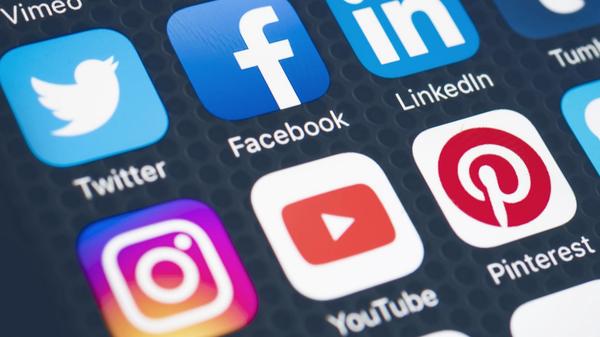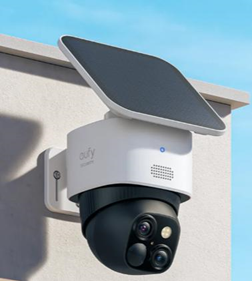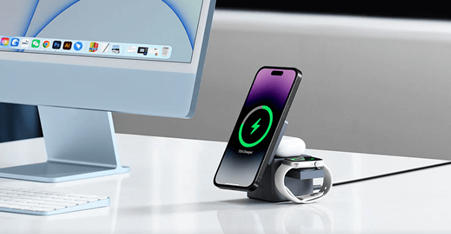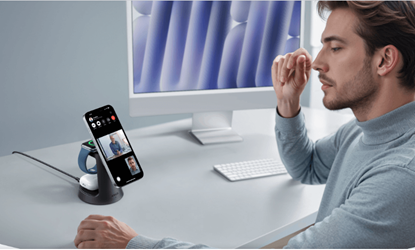This story is part of a series where Verywell Health editors try different health trends and report what they find.
Key Takeaways
You either love social media or you hate it. Or you’re like me and constantly vacillate between those two sides of the spectrum.
The apps that dominate so much of our attention have been in hot water more than usual lately. This summer, Facebook whistleblower Frances Haugen released thousands of internal documents to Congress showing that the company knows how it contributes to many harms including its impact on teens’ mental health and body image.
As someone who made their first Facebook account at the age of 12 and Instagram profile shortly after in 2010, I was certainly one of the earliest guinea pigs for the giant social media experiment. For 12 years, I’ve used social media nearly every day. While my relationship with these apps has evolved over time, it hasn’t always been for the best.
Throughout the pandemic, I spent too many hours scrolling through photos of people who failed to follow safety precautions. TikTok’s algorithm often sucked me in for three or four hours at a time. This kind of “doomscrolling” took a major toll on my mental health. This is common. Excessive social media use has been associated with increased depression, anxiety, poor sleep, memory loss, and more.
So I decided to try a “social media detox.”
What's a Social Media Detox?
The rules are simple. No social media—which for me includes Facebook, Instagram, Twitter, and TikTok—from Monday to the following Sunday. While some studies recommend limiting use for as much as a month, more than a week wouldn’t work because of my job duties as an editor.
The Process
On Monday, November 2, I deleted all social media apps from my phone, to remove temptation from the equation. For the week, I also refrained from clicking on social media links friends or coworkers sent me. And I made sure not to scroll on my partner’s phone or ask for screenshots of social media posts.
Unsurprisingly, the first days were the hardest. On Monday morning my fingers worked on a mind of their own: unlocking my phone, swiping right, and pulling down my search bar looking for phantom apps.
Almost immediately, a craving for the endless scroll settled in. Mindless scrolling, after all, can be comforting. I spent most of my first day blaming myself for feeling addicted to these platforms. Because in many ways, we’ve demonized “phone addictions” as being symptoms of vanity, and vapidness.

But if you’re trying to pull back too, it’s important to remember that these apps were specifically designed to be addictive. They were built with the intention of keeping you plugged in. It’s not your fault that it worked.
After two days, my fiancé became my new social media paperboy, delivering me a nightly “digest” of the latest online happenings. He informed me that I missed Elon Musk telling the United Nations he’d sell Tesla stock to end world hunger through a tweet and my best friends’ posts from Halloweekend. Also, the return of Starbucks holiday drinks. Without this information, I was practically living in the dark ages.
But beyond missing out on fun tidbits, I felt disconnected from the news, which made my workday challenging. Like most of Gen Z, I get a lot of my news on Twitter. Throughout the day, our Verywell news team often sends tweets and Instagram stories to spur story ideas. For a week, I couldn’t join in or scour TikTok for health trends. I also had to find new ways to decompress throughout the workday. Every time I needed to “turn my brain off” for a few minutes, I could feel my hands reflexively type Twitter in the search bar.
As the days went on I found solutions.
When I needed a break from editing, I got up and walked around my living room. Sometimes I’d even read a few pages of a novel I was working through. I craved the comfort of social media less and less. I found time to do other things that make me happy like boxing, art classes, and reading. I could simply be, without capturing it and without proving my existence for others to see.
I witnessed dramatic improvements in my sleep and mindfulness. On a typical night, I usually lull myself to bed with an hour-long scroll on TikTok in pitch-black darkness. During the detox, I picked up a book instead.
Research shows that the light from our phones at night can throw off our circadian rhythms and mess with our sleep. As a health editor, this isn’t news to me. Still, it can be difficult to follow every piece of health advice experts put forth. This one, however, is definitely worth it.
My sleep was deeper and I woke up with more energy in the mornings. Scrolling on apps before bed often left my body feeling wired—the anxious energy still stirring inside of me. Without social media, that feeling was nonexistent.
My relationship with social media remains just that: a relationship. One that ebbs and flows and looks differently during different periods of my life.
Deleting the apps that function as my biggest distractors also forced me to be more present. When I arrived at my gym 30 minutes before my class began, I pulled out my phone and wrote: Arriving early to class, what do I do? Sit. So I sat and watched the sunset. I felt no need to distract myself. With every day that passed, I continued to be more and more present for those around me.
Once Friday arrived, I faced my final test. After a particularly exhausting week, I wasn’t feeling my best. Almost instantly after I logged off for the day, I could feel myself craving the familiar comfort of sinking into my couch and scrolling the night away. Instead, I stepped outside into the cold for a few moments. I stood in my discomfort. Eventually, the feeling passed. I’m better off for confronting my tiredness and messy emotions and resisting the urge to reach for an easy solution.
Practicing mindfulness can offer plenty of health benefits. It can greatly improve your mental health by enhancing your memory and attention span, as well as helping relieve stress, anxiety, and depression. Physically, being mindful can help improve your sleep, lower your blood pressure, and even help reduce chronic pain.
The Outcome
For me, detoxing from social media wasn’t a life-changing experience. My relationship with social media remains just that: a relationship. One that ebbs and flows and looks differently during different periods of my life.
It didn’t revolutionize my life. I didn’t pour all the time I once spent scrolling into writing the next great American novel and picking up two or three hobbies. (I secretly hoped this would happen.)
But I did feel more connected to myself, physically and mentally. I slept better. My thoughts were clearer. I trusted my own self-control more than I have in years.
There is no shortage of evidence proving that limiting your use can be beneficial in many ways. In particular, research shows that a digital detox can be great for your mental health and sleep.
One 2020 study found that students who participated in a digital detox period experienced better moods, reduced anxiety, and improved sleep. A 2018 study found that reducing Facebook, Instagram, and Snapchat use to 10 minutes, per platform, per day, for three weeks led to less loneliness, depression, and anxiety.
During those seven days though, I couldn’t shake the feeling of loneliness. During the pandemic, many of our interactions went online. I moved to a town where I only knew a handful of people. My coworkers all live in another state. Without these small interactions with loved ones scattered across the country, it’s easy to feel isolated.
Social media doesn’t always have to be the villain keeping you from living a fulfilled life. It does also give you those things it once promised it would: silly photos of your best friend’s cat, book recommendations from acquaintances on Instagram, and birthday posts from your mom and all her best friends.
The Final Verdict
My advice is simple: Social media can improve your life when used in moderation. For better or worse, these apps will now forever be a part of the fabric of our society. Instead of having an all-or-nothing mentality toward social media, try working on your relationships with them. Set boundaries by limiting your time spent using the apps.
Moving forward, I’m aiming to be more intentional about my social media use. I want to scroll on TikTok because it’s how I want to spend my time and not because it’s a mindless habit. I don’t want to open up Instagram at every red light. I want to leave my phone untouched for hours on end. There is a way to live “Verywell” while enjoying the good parts of social media. But it’s up to you to determine what that looks like.









